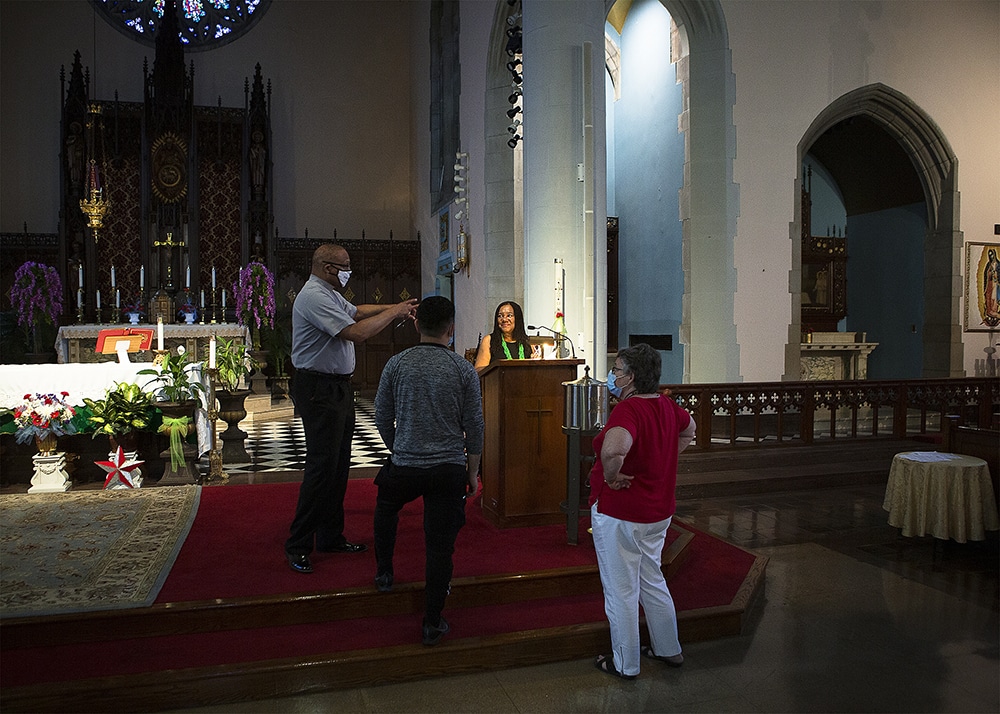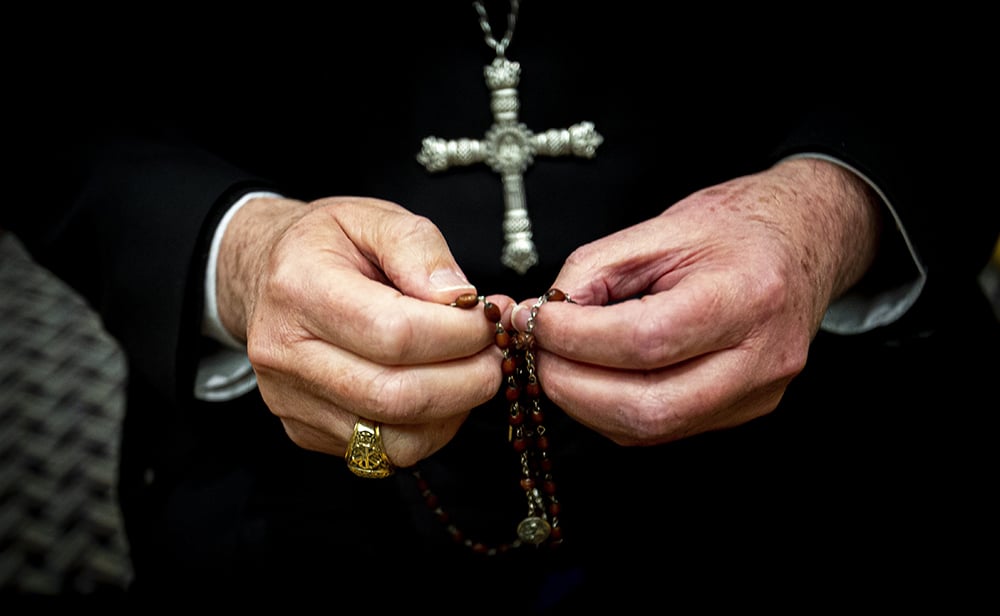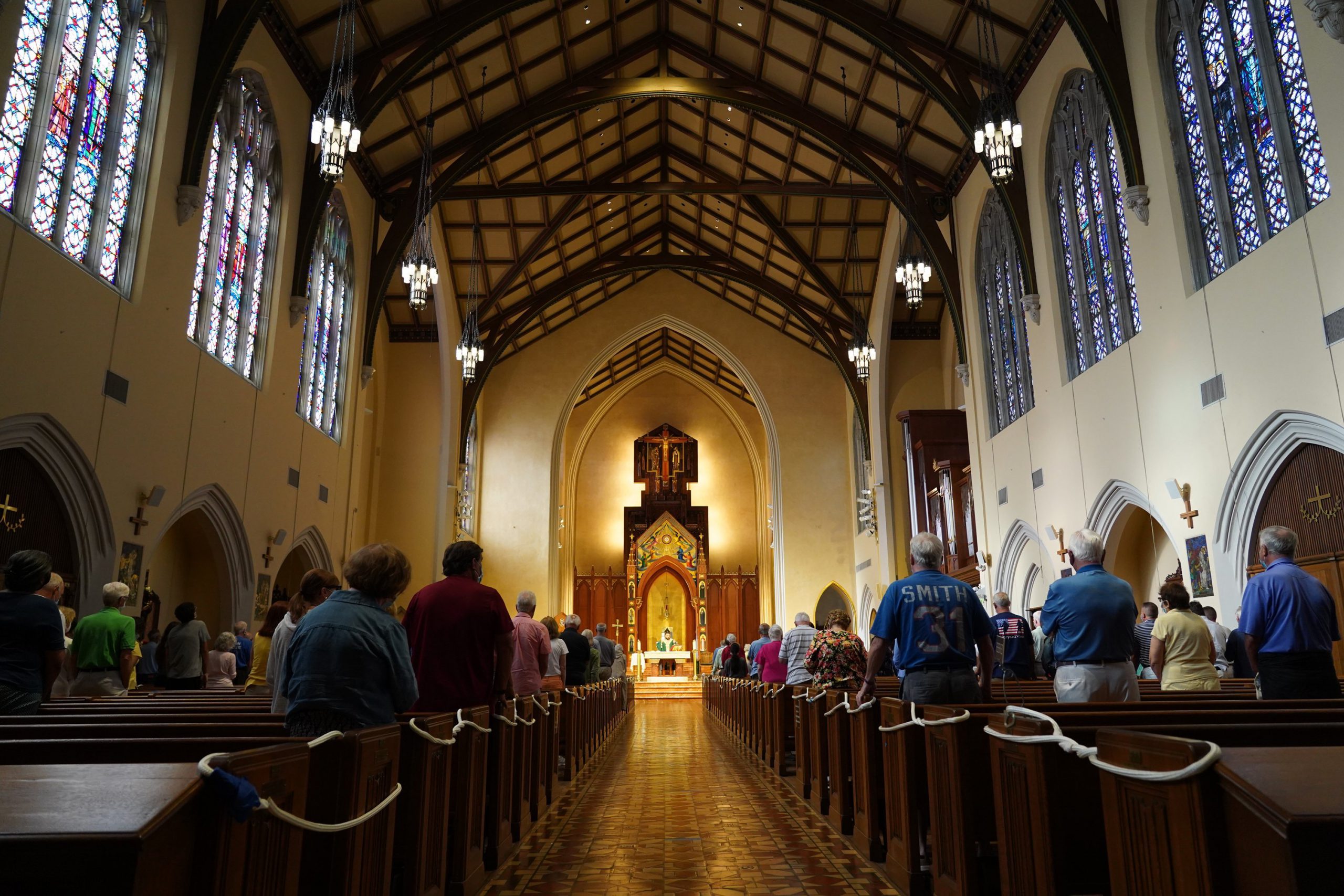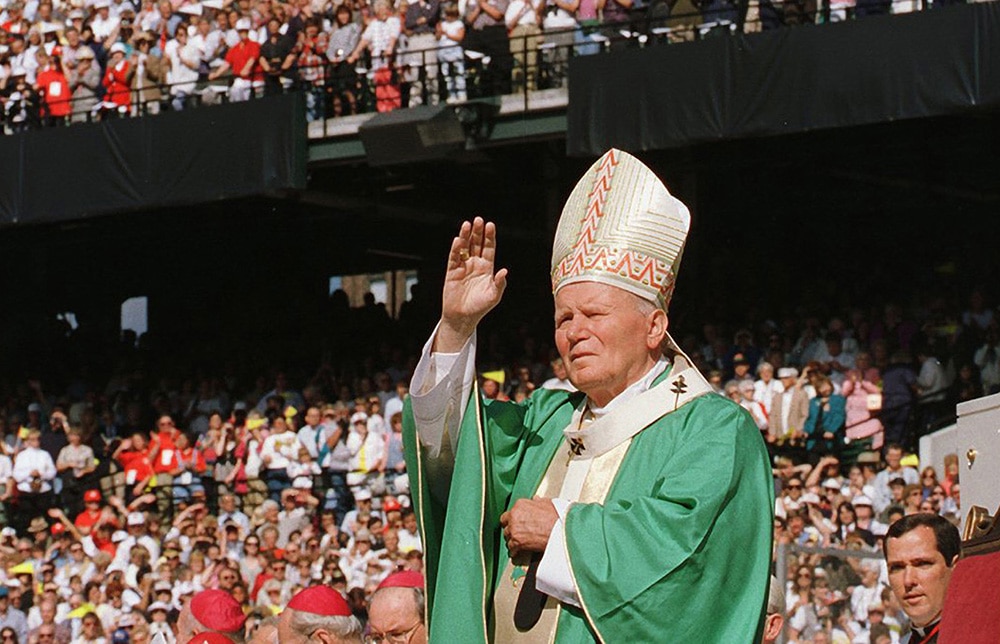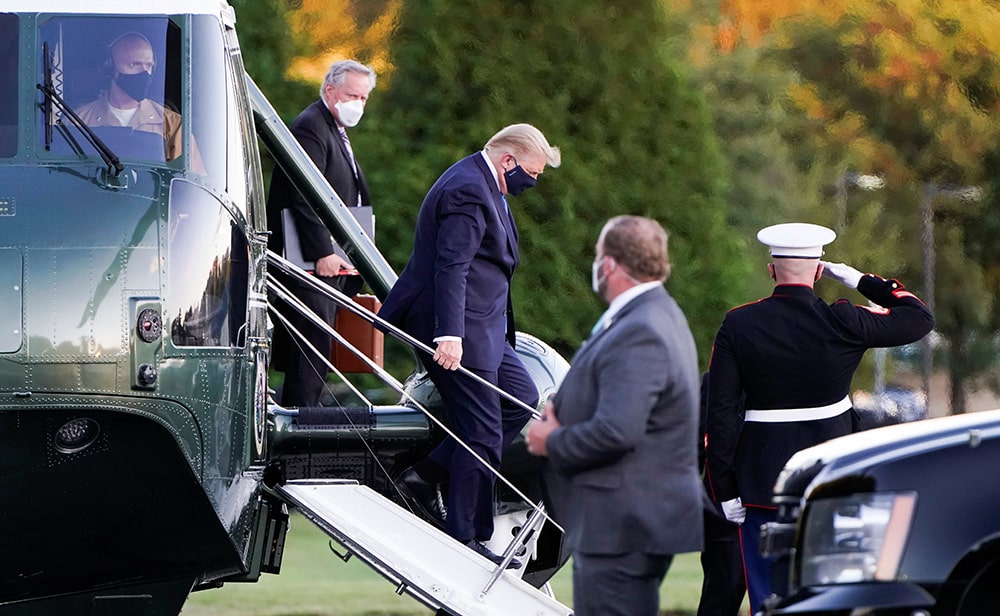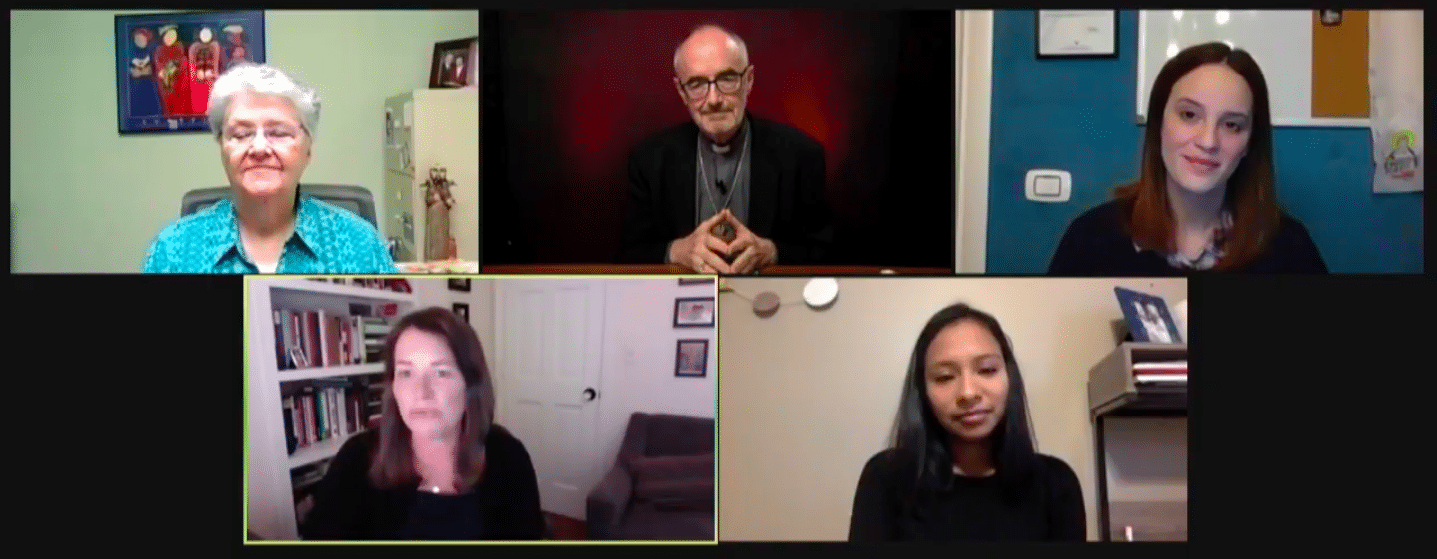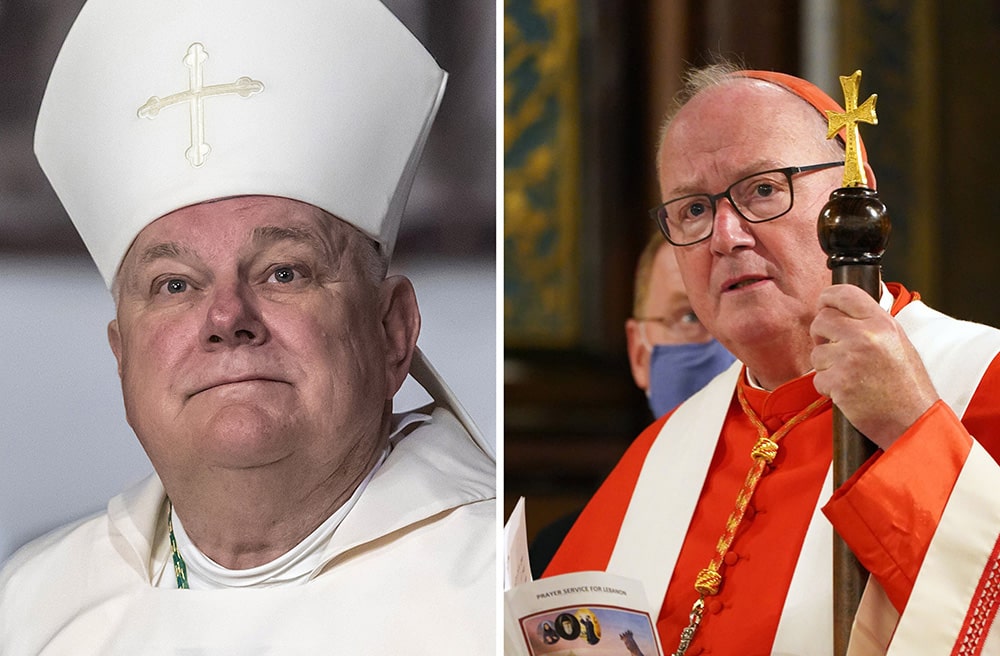Urging Catholic parish communities to embrace a “missionary evangelization,” the Vatican recently issued a new instruction on reforming parishes and restructuring dioceses. Titled “The Pastoral Conversion of the parish community in the service of the evangelizing mission of the Church,” the guidelines were published on July 20 by the Vatican’s Congregation for Clergy.
It acknowledges that cultural changes have challenged parishes and quotes Pope Francis at the beginning of his papacy as he stressed to parish priests the importance of “creativity” while “seeking how best to proclaim the Gospel.” The document offers suggestions for revitalizing parishes and discourages closing them, even despite financial difficulties. It says that “the pastoral care of all requires the contribution of all the baptized.”
One way some dioceses are already collaborating in otherwise struggling parishes is by relieving priests of administrative work through the collaboration with deacons. Canon 517.2 allows for sharing in pastoral care when it is deemed necessary by the bishop due to a priest shortage and there are no alternatives, such as using a retired priest or entrusting several parishes to one priest or a team of priests.
The parish is technically vacant but a priest director with the powers and faculties of a pastor is appointed over the parish administrator and has final say on decisions. The arrangement entrusts a share of the pastoral care to deacons or laypersons, with precedence to be given to deacons. The job of pastoral administrator essentially prevents a parish from closing. It includes office management, directing faith formation programs, preparation for the sacraments, and providing pastoral care excluding what is specific to an ordained priest.
Deacons as managers
In addition to the canonical appointment of pastoral administrator, some deacons have taken on management roles in parishes relying on retired priests or as a way to allow pastors stretched to the limit to give full attention to the sacraments. Deacon Jim Grevenites has been the parish manager at St. Raphael Catholic Church in St Petersburg, Florida, for 10 years. He oversees and coordinates pastoral and temporal activities for 1,700 parish families, including staffing, finances, managing the building facility and directing pastoral ministries at the school.
“The pastor is very involved in the whole parish, but this lets them [their two priests] be priests while I take care of the administrative stuff,” Deacon Grevenites explained. “It’s a job, not an assignment, but I am also assigned here by the bishop.” It is possible for a deacon to be assigned in one parish while managing another.
Deacon Grevenites worked in the safety/security retail business for 25 years before moving from Indiana to Florida in 2001. He has been a deacon for 26 years. “It took me a few years to realize that I have a gift [of] administering, but my first commitment is to be a good minister of the Church,” Deacon Grevenites said. “One of the most critical gifts that a deacon can bring to the Church is his life experiences and to apply that to the parish as a representative of Christ.”
Alleviating shortages
Deacon Denzil Lobo came to the U.S. from Bombay, India, over 25 years ago and has been a deacon for four years. He is also an ecclesial minister at Christ the King Church in Jackson, Mississippi, home to about 180 families. “Our priest is retired and serves as a sacramental minister,” he said. “His primary role is to celebrate Mass and confessions and anointing of the sick. I’m able to baptize and officiate at weddings, so we can split those functions.”
Deacon Lobo is the point of contact with families for funerals, walking with them through the process. He is also the canonical minister for faith formation and oversees religious education for the parish’s K-6 school. Alongside all this, Deacon Lobo works as a computer software programmer. “Being a deacon both in the secular and Church world offers more avenues to share my faith,” he said. “As long as the Lord gives me strength to serve, I am going to keep doing what I can.”
Deacon Mick Fornelli was ordained a deacon in Anchorage, Alaska, in 2009 and serves as a parochial administrator in charge of temporal goods at Holy Cross Parish, home to 380 families, and as a deacon at St. Patrick’s with 1300 families. He is also a chaplain for the fire and police departments and the director of three programs in the diocese: the diaconate, marriage and family life, and liturgy.
“It is a joy to do so much,” he said. “I also sit on the National Association of Deacons. I laughingly say that I retired from the business world working 40-45 hours to work 70-75 hours a week for no pay.” His last secular job, which he retired from just before ordination, was senior treasury administrative officer for the municipality of Anchorage.
“There are more and more dioceses where lay persons and deacons have to take on administration jobs so that the priests can focus on the sacramental side,” Deacon Fornelli said. “The Church trained me to be a deacon, but there’s 40 years of experience in the business world that I can bring to the Church. Priests are often spread between multiple parishes and really have to rely on others.”
Charism of business administration
Deacon Frank Pettrone was ordained in 2006 and serves at St. Mark’s Church in Rochester, New York, both as a deacon and a canonically appointed pastoral minister. “To be a deacon,” he said, “means living a new life in Christ the Servant, which requires losing your old life to allow Christ the Servant to live in you in each and every moment of your life.”
According to Deacon Pettrone, losing his old life included using his gifts and charisms to serve where there was a need. “As a pastoral administrator,” he said, “I believe I not only provide the pastoral care and leadership for our parish, but in doing so, am extending the ministry of a wonderful priest who may have otherwise retired due to the stress of administration.”
Deacon Pettrone left a successful career managing a worldwide technical services organization to accept a full-time position at his parish as a pastoral associate. “After five years of full-time ministry in which I already exercised considerable administrative responsibilities, our pastor desired to continue his priestly ministry but without the burdens of pastoral administration. He and I have worked together very well over the past 14 years.”
Deacon Todd Lovas was ordained three years ago and has served the last two of them as deacon and pastoral administrator at St. Vincent de Paul Church in Shepherd, Michigan, where 340 families are registered. As the pastoral administrator, Deacon Lovas handles all day-to-day administration and teaching ministries of the parish. He and his wife live at the rectory and are a big part of the community.
“When Father Fred [Kawka] goes to anoint someone, I go,” Lovas said. “When someone dies, I go to talk with the family. When there’s a wedding, I am there to help with the marriage and wedding prep. When someone needs to work through a tribunal case, I walk through it with them. When someone has an addiction problem, I am there walking with them.
“Since Father Fred is 82, this is a way not to deprive parishioners of being served by their Church,” he said.
Patti Maguire Armstrong writes from North Dakota.

